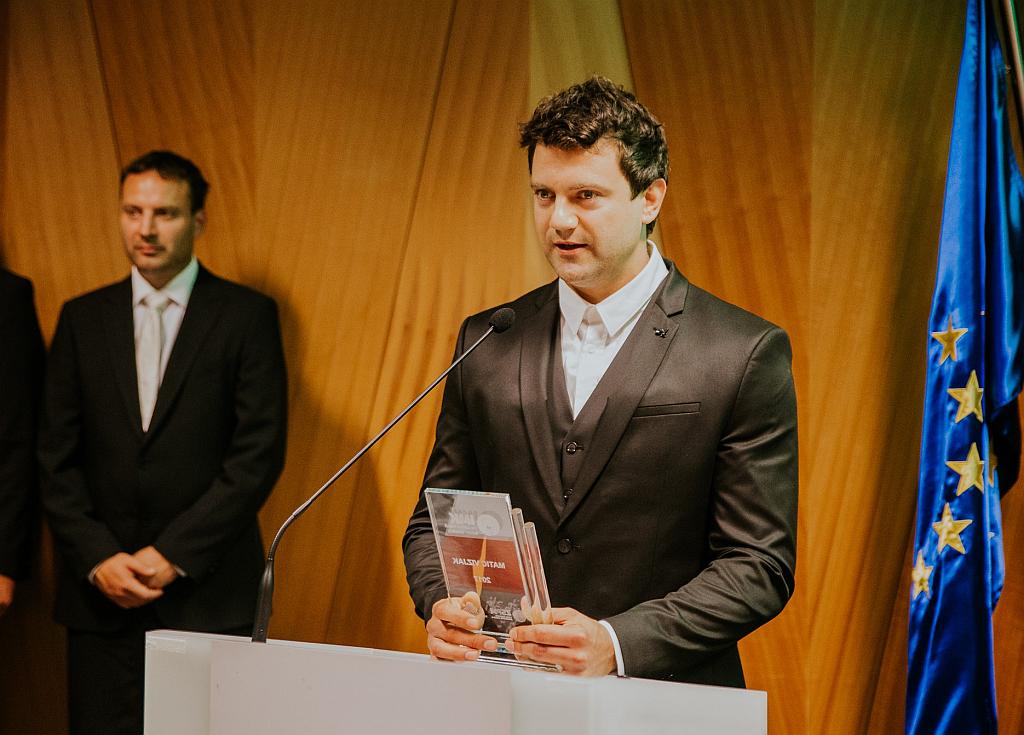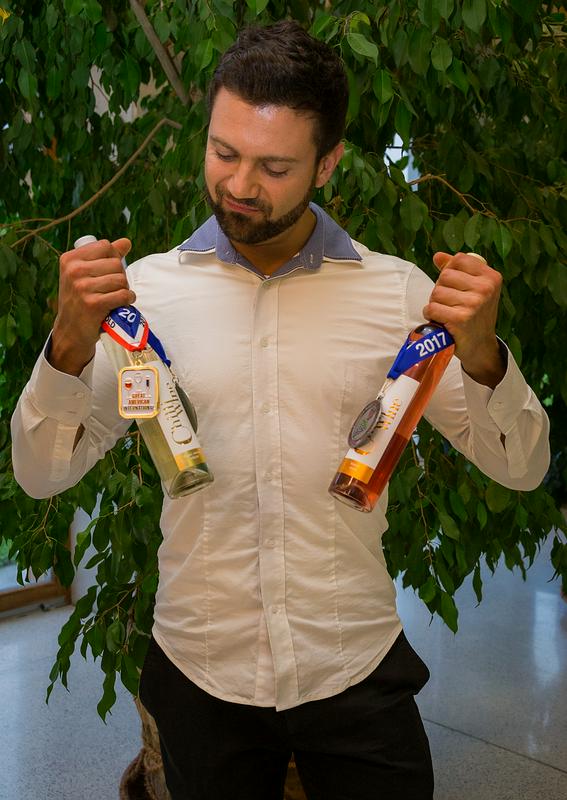

Matic Vizjak, from Šmarje pri Jelšah, received the 2017 Innovative Young Farmer title from the Chamber of Agriculture and Forestry. There were a total of six candidates competing for the title (apart from the winner the others included Martin Golob from Šmartno ob Paki, Borut Gosar from Vodice, Lojze Kerin from Krško, Bogdan Mak from Malečnik and Dejan Sukič from Gornja Radgona). What convinced the chamber was Vizjak’s organic farm, mostly dedicated to the production and processing of chili peppers. He also started making spicy liquors and his most recent success is – chili pepper wine.
You can read more about his innovative product and his farm in the interview below.
You do a whole range of activities on the farm: the production and processing of chili peppers, beekeeping, the manufacture of grain mill products, winery. Are any of those activities more in the forefront?
The recurrent theme on our farm is surely the production and processing of chili peppers. We started giving priority to our on-farm supplementary activity because of the great interest for our homemade hot sauces. We named our line of hot sauces “Čili frik” and the demand for our sauces is increasing every month. That’s how we came to the idea of a spicy honey liqueur, a brandy, and of course our “chili wine” to which we will give most attention to.
In its presentation the Slovenian Chamber of Agriculture and Forestry only highlighted your chili wine. It’s a special sort of wine, isn’t it?
That’s right. It’s a unique sort of wine, which can’t be matched with any wine in the world. We are the first to make spicy wine. The recipe is protected and is our intellectual property. Our first attempt to combine chilies and wine happened in 2014, but that experiment was a disaster. However, it didn’t stop us from trying again and again. At the end of the day, combining 9 different components into one product really is a demanding process.
One year later, for the first time ever, we presented a white spicy wine variety to the public and the reaction was phenomenal. It gave us the courage to go another step further and try enter our product into one of the many wine competitions. With that idea in mind we joined forces with an excellent winemaker from a neighbouring village, Mr. Ivan Kolar, and together, with his knowledge, we won three awards at our first competition in New York.
Where did you come up with the idea of chilies in the first place?
I’ve had a love for spicy food since a young age. When my father returned from the army he brought home some hot pepper seeds, and so spicy food has been a regular thing in our home ever since. I’ve always had chili peppers by my side, even when growing up and going to work abroad. And after many years my love and hobby for growing chilies turned into a business idea.
What does your production look like?
We finalized our production line this year and are now prepared for larger sales. We produce and process everything by ourselves, from the saplings and fruits to the final product, promotion and sale.
Was the farm involved in such activities in the past, or did you introduce this?
I’m the fourth generation of organic farmers, which farm land in a non-invasive way. My father was already into beekeeping and had grain mill products, but in smaller quantities. So… the farm was already active, before I returned home after 9 years. But the transformation of our love for chili into a business idea started three years ago.
I read that you are slowly making a transition towards organic production. One can hear many complaints, that the procedures are (too) demanding. How do you see it?
We had no problems with our transition because, as I already mentioned, we have been farming only with organic methods from the very beginning. In recent years we have also upgraded that and now also farm according to Maria Thun i.e. her lunar calendar, which is indeed the highest level of symbiosis with nature.
Regarding the procedures, I can surely say that they can be overburdening, both for us and the inspectors. I’m completely convinced that much of the bureaucracy could be left out without posing any risks. That would make it easier for all of us and would decrease the amount of time we lose on filling out forms and saving different unneeded documents…
I presume that you don’t work alone on the farm, as it would be very difficult for just one person to do all that work. Who helps you?
I always, and everywhere, happily make the point that this story includes the whole family, including our friends and fellow villagers, who always come and help when there is more work to be done.
In the presentation by the Slovenian Chamber of Agriculture and Forestry, it also says that you spent nine years away from home i.e. abroad, and then returned to the farm. What were you doing?
Immediately after high school I said goodbye to education and went to work abroad as a sailor on a cargo ship. A boarded the ship in Singapore. When my contract expired I continued working in our city of roses – in Hotel Pororož as a lifeguard, a sauna wellness master, a personal coach and a waiter.
After three years I once again decided to leave my homeland and went to the only continent I hadn’t visited with the cargo ship, Australia. I tried cooking, and in half a year I got promoted to being a chef in Gold Coast in a place called Surfers Paradise. I then worked there for another six months. When my visa expired I decided not to ask for an extension. I returned to Portorož again and after spending three more years there decided to leave the place – this time for good – and went back home to Šmarje, where a wonderful new story is now developing.
Do you think the state gives young farmers enough financial (and other) incentives? Where do you see the problem?
Of course, there are financial incentives, but in my opinion the problem is that they depend too much on the amount of land surface a farm has. It is sensible, but only to a certain extent. I don’t think it’s fair that a farmer isn’t able to apply for a young transferee of a farm status, if he just has 1 hectare of arable land! Where does it say that such a small farm cannot create more jobs, and can’t have, for example, its own production line?
The times when it was important to have at least 50 head of cattle or 30 hectares of arable land are long gone! Innovation is important today, to be in touch with the market, feel the pulse of the consumers and try get close to them through modern, and fresh, approaches. We only have 2,2 hectares of arable land, and me and my father can live of that. Quantity is not important, but quality (laughter).

































































